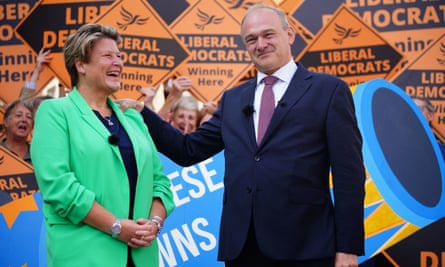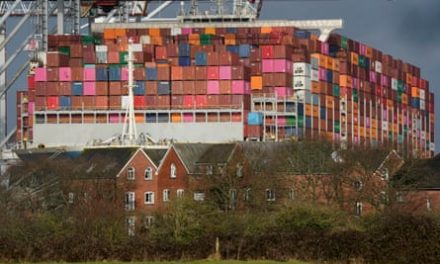When parliament returns in the autumn, it will have three new MPs, each of whom represents something unique about their party’s best chances of success at the next election.
For Labour, Keir Mather’s victory in Selby and Ainsty was evidence of the power of the “change” message it hopes to sell to voters next year. At 25 years old, Mather will become the “baby of the house”, having run on the campaign slogan of “a fresh start”.
After his victory on Thursday night, he told reporters: “As a young person in politics, I really hope to be a representative for the power that young people have to make a difference.”
Labour officials will also take heart that Mather won by cleaving firmly to the main campaign messages of the national party, to such an extent it earned derision from his opponents. Johnny Mercer, the Conservative MP and minister of state for veterans’ affairs, told Sky News on Thursday night: “I think it’s always good to get new people in politics, but I think we mustn’t become a repeat of The Inbetweeners.
“You’ve got to have people who have actually done stuff. This guy has been at Oxford University more than he’s been in a job. You put a chip in him there and he just relays Labour lines, and the problem is people have kind of had enough of that.”
Labour, however, points to Mather’s victory as proof that voters have not had enough of candidates like him.

The Liberal Democrats’ chances of victory in Somerton and Frome looked to have taken a knock early in the campaign after their candidate, Sarah Dyke, struggled to answer questions about her party’s national policies in an interview with the Guardian.
But Dyke’s victory showed the party’s history of strong local campaigning in the south-west is beginning to yield results again after several years of poor outcomes after going into coalition with the Conservatives in 2010.
As well as serving as a local councillor, Dyke comes from a Somerset farming family that can trace its roots back 250 years. She won plaudits on the campaign trail for her knowledge of farming issues, even if her party occasionally caused irritation with the number of leaflets it pushed through letterboxes.
For the Conservatives, however, there is one main message from Steve Tuckwell’s unexpected victory in Uxbridge and Ruislip: do not campaign on a Conservative platform.

Tuckwell is a longstanding Tory councillor in the area but barely mentioned the party or the prime minister on his campaign material. Instead of referring to himself as the Tory candidate, he called himself the “anti-Ulez candidate”, referring to the Labour mayor Sadiq Khan’s plans to extend the ultra-low emission zone to outer London.
Tuckwell’s one-issue campaign paid off and gave the Tories a blueprint for how they might cling on to more seats than expected at next year’s election. If the party can find other such local “wedge” issues next year, they might be able to buck the national trend.
The problem will be finding the issues that work and the candidates who might best exploit them.
Join the exciting world of cryptocurrency trading with ByBit! As a new trader, you can benefit from a $10 bonus and up to $1,000 in rewards when you register using our referral link. With ByBit’s user-friendly platform and advanced trading tools, you can take advantage of cryptocurrency volatility and potentially make significant profits. Don’t miss this opportunity – sign up now and start trading!







Recent Comments